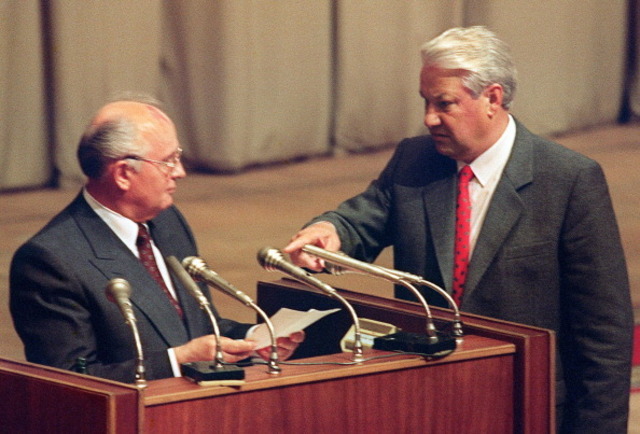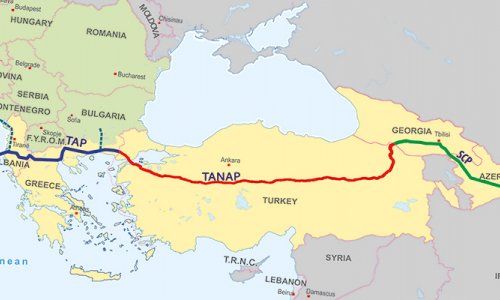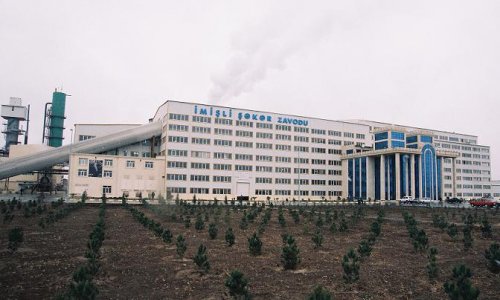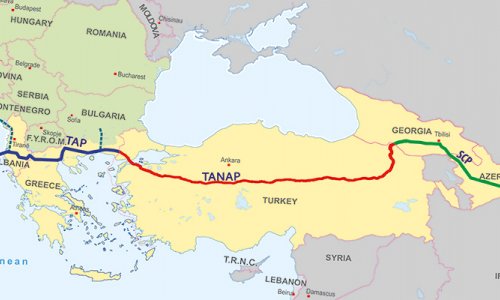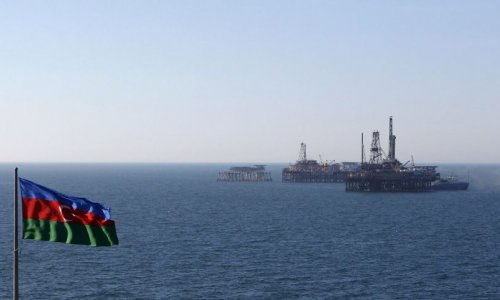By Leonid Bershidsky
Having lived through the collapse of the Soviet Union, I have a lot of sympathy for the Greeks. If they vote to reject the creditors' proposal in the July 5 referendum, they may experience a version of what we endured.
No two unhappy countries are exactly alike, and no two economists ever agree, so there are conflicting theories for both the Soviet and the Greek economic collapses. But the end results are similar in both cases: a leftist government unable to pay for its social obligations or provide a working infrastructure for its citizens and deprived of access to external resources.
Like Greece would be after a debt default, the Soviet Union in the years before its collapse, and Russia immediately afterward, had no access to global debt markets, which were much smaller then anyway. So imagine a country whose economy plummets (in 1990, for example, the Soviet economy contracted 5 percent) but is unable to borrow.
The Soviet Union tried to get around that problem by printing money to maintain living standards. As a result, the aggregate nominal income of Soviet citizens more than doubled in the third quarter of 1991, compared with the year-earlier quarter. At the same time, Mikhail Gorbachev's government tried to control prices. That led to the disappearance of almost everything from the stores. There were ration cards for basic staples such as soap, tea, sausage, cereals and, of course, vodka and tobacco. And there was a black market, as well as special stores for foreigners that only accepted dollars. In 1991, the official exchange rate was 1.75 rubles per $1, but on the black market, $1 was worth about 30 rubles.
A mild version of this is possible if Greece votes "no." The country won't have enough euros to go around, and will probably start paying government employees in some kind of scrip, which will soon be worth less than its nominal value. It's conceivable that Syriza, the governing party, might try to control prices on basic foods, and a black market in both goods and currency would immediately spring up.
One could argue that the Soviet Union's economy was closed and that Greece's is open. Yet now that capital controls have been imposed in Greece, that is no longer quite as true. People unable to draw more than 60 euros a day from an ATM or pay for Internet services located in other countries, such as Apple's iSpace, no longer live in an altogether open economy. When the government will only let people have enough money to buy food for a day, only hoarders have a distinct advantage. Once Greeks are paid in scrip instead of euros, they will be much like Soviet citizens in 1991.
If Greece's leaders don't impose price controls, their citizens may be in for the kind of shock therapy Russians experienced in 1992, when the government decided to free prices. This was a courageous, liberal move for leaders who had just left the Communist Party behind, but their leftist background turned out to be hard to shake. Money-printing was still the only way to fund the public sector, and there wasn't much else in Russia except the public sector. Inflation reached 2,600 percent that year.
The hardship was immense. Russia's gross domestic product shrank 19 percent in 1992, and the number of suicides jumped 17 percent. Factories were bartering goods because money lost value too fast.
Retirees were paid their pensions more or less regularly, but couldn't buy anything with them, and elderly people resorted to begging. Medical services were still available free to everyone, but few could afford medication, which was in short supply anyway. At the same time, the criminal class was growing fat: In times of economic distress, corruption and just plain racketeering always flourishes. Apart from graft and robbery, the only way to make money was to work in the private sector, preferably for a foreign company or a joint venture with one. That meant, in the best-case scenario, a salary in dollars or some other hard currency. Wages were paid in cash: who bothers with taxes when life is this tough? Greek small business owners, who have never been eager taxpayers and who now resolutely refuse credit cards, will sympathize with us here.
Again, Greeks' suffering will be milder than ours was. If tourists keep coming -- and they will -- Greeks will have more access to hard currency than people did in 1992 Moscow. Also, the Greek government -- leftist though it is -- might avoid some of the Russian mistakes if it doesn't issue huge loans, in freshly printed currency, to industries and farms. I fear, however, that it might succumb to temptation: The International Monetary Fund will no longer be looking over its shoulder, and austerity will have few advocates.
The IMF-designed bailout was tough for Greeks. The social infrastructure has become frayed, many people left the country. Many others ended up jobless and unable to afford basic needs, others lost their job security and benefits such as health insurance.
Prime Minister Alexis Tsipras keeps telling his voters that Europeans won't dare kick Greece out of the euro area and the EU. Just remember: In March 1991, Boris Yeltsin promised the Soviet Union would never fall apart.
Make no mistake -- with a "no" vote, Greece is headed out of the euro area and soon thereafter of the EU itself. So bad times are coming. The good news is that if we survived ours, Greeks will live through theirs. Humans are resilient and adaptive, and once things get really bad, most will hustle in ways they never expected. As Tsipras keeps saying, they will still have their pride and their courage. He may be just campaigning to keep power, but he's right to try to keep morale high. Those who despair have no chance.
A "yes" vote would probably mean a new government, possibly one prepared to make tough commitments and negotiate some debt relief in exchange. Life will be harsh, too, but with outside support, they'll do a lot better than we did a quarter of a century ago.
(Bloomberg View)
www.ann.az
Follow us !

